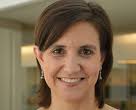
19 Dec Losing Weight – and Keeping it Off – Reduced Breast Cancer Risk in Women Over 50
MedicalResearch.com Interview with:

Dr. Teras
Lauren Teras, PHD
Scientific Director, Epidemiology Research
American Cancer Society
MedicalResearch.com: What is the background for this study?
Response: Excess body weight is a known cause of postmenopausal breast cancer, but an important question is: can you reverse it? Believe it or not, this not something we knew for certain. We had hoped it was true, but the scientific evidence was not there.
This research question is, of course, particularly important for the more than two-thirds of U.S. women who are overweight or obese, and therefore at higher risk for breast cancer.
To try to answer this question, we used a very large pooled study of 180,000 women aged ≥50 years from 10 different prospective studies.
MedicalResearch.com: What are the main findings?
Response: In this study we found that women who lost weight over ~5 years, and then kept it off for another ~5 years, had a 13-26% lower risk of breast cancer depending on how much weight was lost, compared to women who maintained a stable weight over approximately 10 years.
In other words, we found that losing weight—and keeping it off—lowered breast cancer risk for women aged 50 years and older. The more weight that was lost, the greater the reduction in breast cancer risk. Perhaps equally as important, these results suggest that if you do gain weight, it is not too late to lower your risk of breast cancer by losing weight.
MedicalResearch.com: What should readers take away from your report?
Response: Even five pounds of weight loss can lower your risk of breast cancer if that weight is kept off. Importantly, we also found that if you do gain weight after age 50 years, it is not too late to lower your risk of breast cancer by losing weight.
MedicalResearch.com: What recommendations do you have for future research as a result of this work?
Response: Understanding the barriers to weight loss and identifying creative ways to make it easier to maintain a healthy body weight, perhaps in the years leading up to the menopausal transition when women often gain weight, would be key. We know that people should lose weight and this study gives us one more important reason why they should, but we need behavioral scientists to help us identify effective ways for women to lose weight and keep it off.
MedicalResearch.com: Is there anything else you would like to add?
Response: Given that breast cancer is the most commonly diagnosed cancer in women, the question of whether weight loss can reduce breast cancer risk is of great public health importance. We hope our findings help further motivate women to work hard to strive for a healthy body weight.
Citation:
Lauren R Teras, Alpa V Patel, Molin Wang, Shiaw-Shyuan Yaun, Kristin Anderson, Roderick Brathwaite, Bette J Caan, Yu Chen, Avonne E Connor, A Heather Eliassen, Susan M Gapstur, Mia M Gaudet, Jeanine M Genkinger, Graham G Giles, I-Min Lee, Roger L Milne, Kim Robien, Norie Sawada, Howard D Sesso, Meir J Stampfer, Rulla M Tamimi, Cynthia A Thomson, Shoichiro Tsugane, Kala Visvanathan, Walter C Willett, Anne Zeleniuch-Jacquotte, Stephanie A Smith-Warner. Sustained weight loss and risk of breast cancer in women ≥50 years: a pooled analysis of prospective data. JNCI: Journal of the National Cancer Institute, 2019; DOI: 10.1093/jnci/djz226
[subscribe]
Last Modified: [last-modified]
The information on MedicalResearch.com is provided for educational purposes only, and is in no way intended to diagnose, cure, or treat any medical or other condition. Always seek the advice of your physician or other qualified health and ask your doctor any questions you may have regarding a medical condition. In addition to all other limitations and disclaimers in this agreement, service provider and its third party providers disclaim any liability or loss in connection with the content provided on this website.
Last Updated on December 19, 2019 by Marie Benz MD FAAD
